Director: Jean-François Richet
Cast: Mel Gibson, Erin Moriarty, Diego Luna, Michael Parks, William H. Macy, Elisabeth Rohm, Thomas Mann
Running Time: 88 min.
By Zach Nix
Mel Gibson (Lethal Weapon, Mad Max) is one of cinema’s most rewarding figures. He’s worn many faces over the decades: actor, action star, filmmaker, and even comedian. Although he’s been successful on all fronts and always been a reliable entertainer, I personally believe that Gibson shines best as an action star. While the initial years of his career were filled with successful action classics here and there, Gibson seems to have struggled to re-establish himself as the mainstream action star he once was, which is a shame. In the last six years, Gibson has more or less devoted his career to action cinema, appearing within four action films of varying quality and as varying characters: a mournful father out for revenge in Edge of Darkness, a down on his luck getaway driver in Get the Gringo, a cartoonish super villain in Machete Kills, and a mercenary with a grudge in The Expendables 3. While all of those films are from perfect, I think everyone can agree that the best part of those four movies is none other than Gibson. The point being, Gibson always brings his A-game to every film that he does, even when the film is undeserved and even if mass audiences refuse to flock to his movies as they used too.
This all brings us to Gibson’s latest and purest genre offering, Blood Father. The neo-western, directed by French filmmaker Jean-Francois Richet (Assault on Precinct 13, Mesrine) advertises a dirtier and grittier Gibson than ever seen before. The Australian star has dabbled in hard-edged films before, but none as pure and vengeful as Blood Father. While the film’s basic genre premise and B-movie imagery seemed promising, I am sad to report that the film is fairly disappointing, especially for those hoping for a simplistic and streamlined action vehicle. Besides Gibson, who shines thanks to an immense amount of pathos and memorable but short action scenes, just about every other element of this pulpy action thriller hinders it from being the emotional and viscerally affective genre picture that it could have been.
Blood Father tells the story of John Link (Mel Gibson), a father of one and survivor of alcoholism who lives by himself in a run down trailer. However, it’s his daughter, Lydia (Erin Moriarty), who is the true basket case. After running off to live with gangsters, Lydia comes to regret her decisions, especially when she accidentally shoots her gangster boyfriend, Jonah (Diego Luna). When Lydia comes crawling back into the arms of her father, John must than take it upon himself to protect his daughter from various hit men and assailants out to kill her.
In a post-Taken world, it seems almost impossible to watch any action film about a protective father and not think about Liam Neeson’s modern classic. But alas, that’s what happens when a successful action film permeates the zeitgeist through an affective premise that can be easily duplicated. (see action cinema post-Die Hard for a similar example). However, Blood Father fails where Taken succeeded due to its confounding narrative through line and an all around lack of narrative momentum. In its defense, the film starts off strong, establishing that Link is both desperate and loving while his daughter is unappreciative and immature. Once Link and a group of gangsters throw down, the film’s narrative is set into effect, as father must now protect daughter whilst bonding with her. And yet, Richet can’t seem to affectively deliver this premise, as his film quickly becomes a bore to sit through. Many uninteresting dialog scenes and dull character exchanges permeate the entire picture from this point forward and ruin any sense of energy or momentum that the film possessed. The narrative even feels as if it were made up along the way, almost as if there was never a completed script, even though the film was based upon a book. If one were to trace the through line of the narrative from scene to scene, it all comes out rather jumbled and unnatural in terms of story progression. Numerous plot detours also overly complicate the picture and send it into direct to video (DTV) territory at points as well, including a smattering of technical flaws that I will get to in a bit. While it’s clear that Richet wanted to take a genre film and focus on the dramatic elements at its core, it’s a shame that he can’t provide an affective and engaging story when all of the pieces for success are right there in front of him.
Blood Father is such a missed opportunity, as it easily could have been the perfect comeback vehicle for Gibson were it advertised and made better. The film is almost a miniature celebration of Gibson, as several visual cues and elements recall previous films of his. From Gibson’s handling of a sawed off shotgun (Mad Max), to his residence within a beat up trailer (Lethal Weapon), to even the film’s story concerning a father who loves his daughter (Edge of Darkness), Blood Father is almost a greatest hits collection of Gibson’s cinema, but unfortunately nowhere near as good as his previous efforts. With that being said, Gibson himself brings his A-game, and further proves that he is still one of action cinema’s all time greatest stars.
Without Gibson, Blood Father would be dead in the water and nothing but stagnant entertainment. Gibson is so physically ripped and huge in this role that one could easily draw comparisons to Sylvester Stallone’s physical transformation in Rambo. He not only looks like a beast, but a literal bear as well, especially with his shaggy beard and leather like face. Gibson’s face appears to be so worn that he looks like he has been through decades of turmoil and remorse, almost resembling Charles Bronson’s weathered face from his seventies cinema (i.e. Death Wish, The Mechanic). Gibson exudes immense pathos not simply through his character’s actions and wishes, but also through his puppy dog like stare. I never fully realized how truly apathetic and caring Gibson’s face is; it’s one of his winning attributes. All in all, Blood Father is yet another reminder that Gibson is one of our premiere entertainers, no matter how good or bad the film he participates in.
While Gibson may be first rate, his supporting cast is fairly forgettable and in dire need of stronger direction. The biggest offender of the film is Erin Moriarty as Lydia, Link’s daughter. Not only is Moriarty painfully over dramatic, but her character is especially grating and immature. I understand that her character is supposed to start out unappreciative of her father’s actions in order for her to arc into a caring and loving person, but her eventual transformation occurs out of nowhere and so close to the film’s end that it was simply unbelievable. Other supporting performances by Michael Parks (Django Unchained), William H. Macy (Fargo), and Diego Luna (Rogue One: A Star Wars Story) are fine, but are otherwise wasted and unconvincing within a jumbled genre picture that can’t even keep its story straight. Gibson fans will appreciate an appearance by Raoul Trujillo, the main antagonist from Apocalypto, as an unnamed hit man though. While the names within the film are impressive and noteworthy, the supporting cast doesn’t do the feature any favors and leave all of the heavy lifting on Gibson’s shoulders.
Besides Gibson, who is thoroughly excellent from start to finish, every other element of Blood Father disappoints or frustrates. For starters, the film’s action quota, which is minimal, is mostly affective. Shot selection, action choreography, sound design, and special effects are typically solid. However, the action scenes are so short, that they are nothing more than short bursts of violence. While I understand that Richet wanted to focus on the dramatic elements of the film more so than the action parts, it’s a shame that there isn’t a wealth of action to fall back onto as the relationship at the core of the film failed to engage me. A similar example from this year is Criminal, an unsuccessfully emotional action film that fails to engage the viewer but occasionally dazzles with excellent but short action scenes. That being said, the minimal action within Blood Father is uniformly solid, from a short gun attack on Link’s trailer, to a small motorcycle chase, to even the film’s bad ass final confrontation. Genre junkies will be in heaven when Gibson picks up a gun and goes to town on villainous henchmen at various points in the film. Unfortunately, there is simply too little action to fall back on too.
Technical merits are a mixed bag, ranging from affective and visceral to confounding and amateurish. As I stated before, the action is uniformly solid, except for a confrontation within the opening scene that was almost visually incomprehensible. However, the film’s biggest technical problem tends to be its weak photography and editing during dialog sequences. There are so many close ups, cuts, and angle changes during character exchanges, that conversations become virtually unwatchable and visually distracting. It’s almost as if the editor and cinematographer were so bored with the dialog and performances at hand, that they couldn’t help but visually shake up the screen in order to make things appear livelier. An exchange between Link and a prisoner inside of a jail is plagued by so many mind boggling close ups and angle changes that I couldn’t help but throw up my hands and laugh quietly to myself. Moments like these enforce the film’s DTV nature, despite its otherwise beautiful Western imagery outside of close up dialog exchanges.
Blood Father sells itself as a gritty, cruel, and unforgiving genre picture with a dramatic relationship at its core. While this is true, as the film’s violence is graphic and the father/daughter story tried and true, it can’t fully deliver on either of its promises and gel into an all around cohesive action thriller. Richet, who seems proficient in terms of action direction, squanders a father/daughter story by sending off his characters on a journey of survival that never feels momentous. The film bounces from scene to scene with little feasible through line to any of it; almost making little sense at times, overly complicating things, and turning an action thriller into a dull chore to endure. Therefore, Blood Father fails on nearly all accounts because it doesn’t feature a compelling story or affective action to compliment its story. The pieces are there, and some moments shine bright, but Blood Father barely amounts to a recommendable piece of action entertainment. Were it written better and placed in the hands of a more competent filmmaker, Blood Father easily could have been a slam dunk a-la Taken or even Gibson’s similar but lighter Edge of Darkness. Gibson fans will want to check out the film anyways for the Aussie’s excellent performance and kick ass action scenes, but beyond that, viewers will find themselves dancing dangerously on the edge of genre hell with Blood Father. Proceed with caution.
Zach Nix’s Rating: 4/10

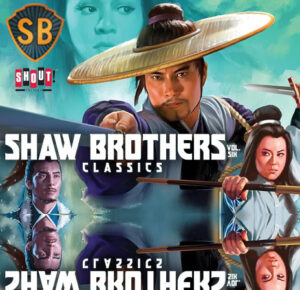
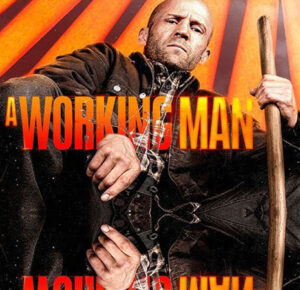
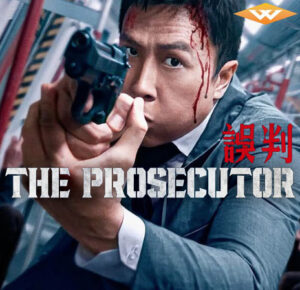
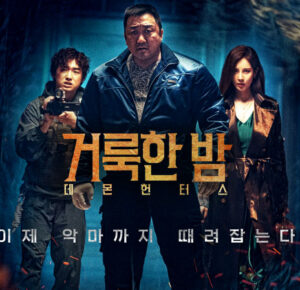
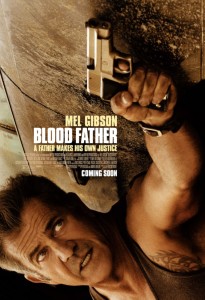

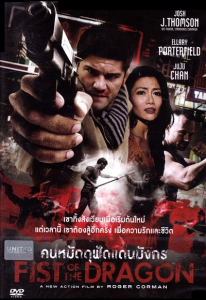
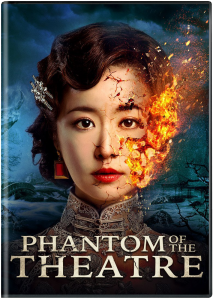
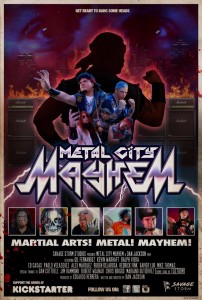
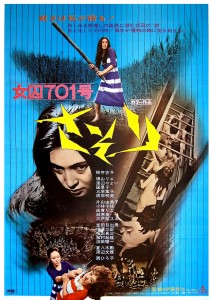
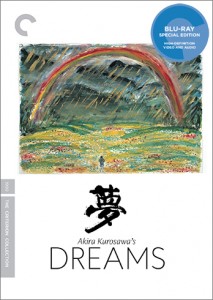
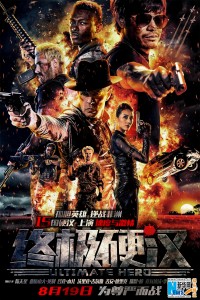
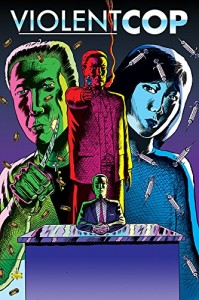
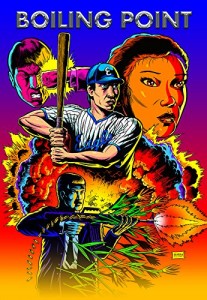

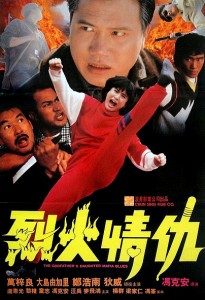
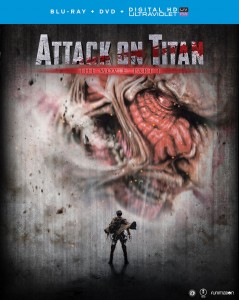




4 Comments